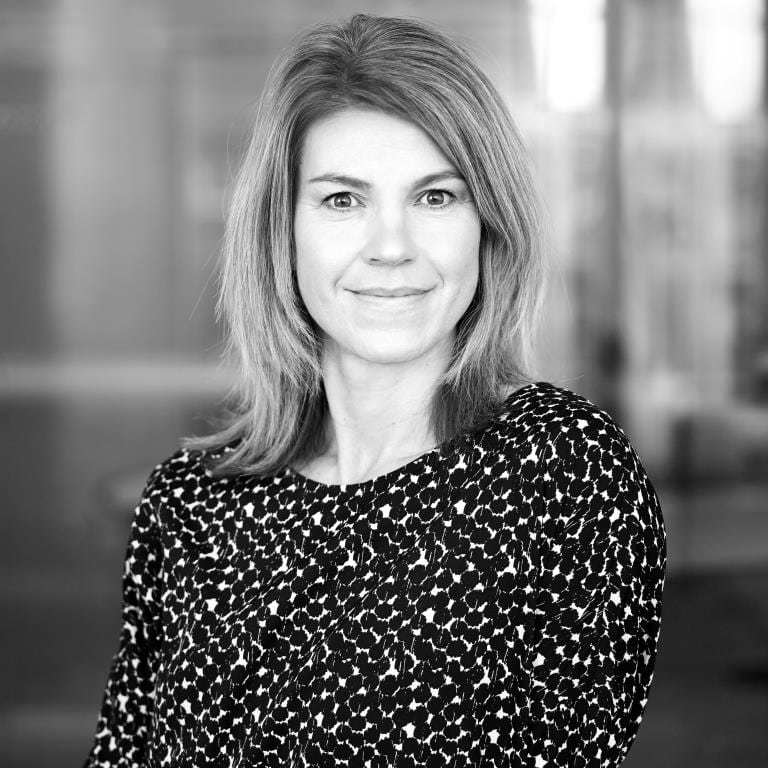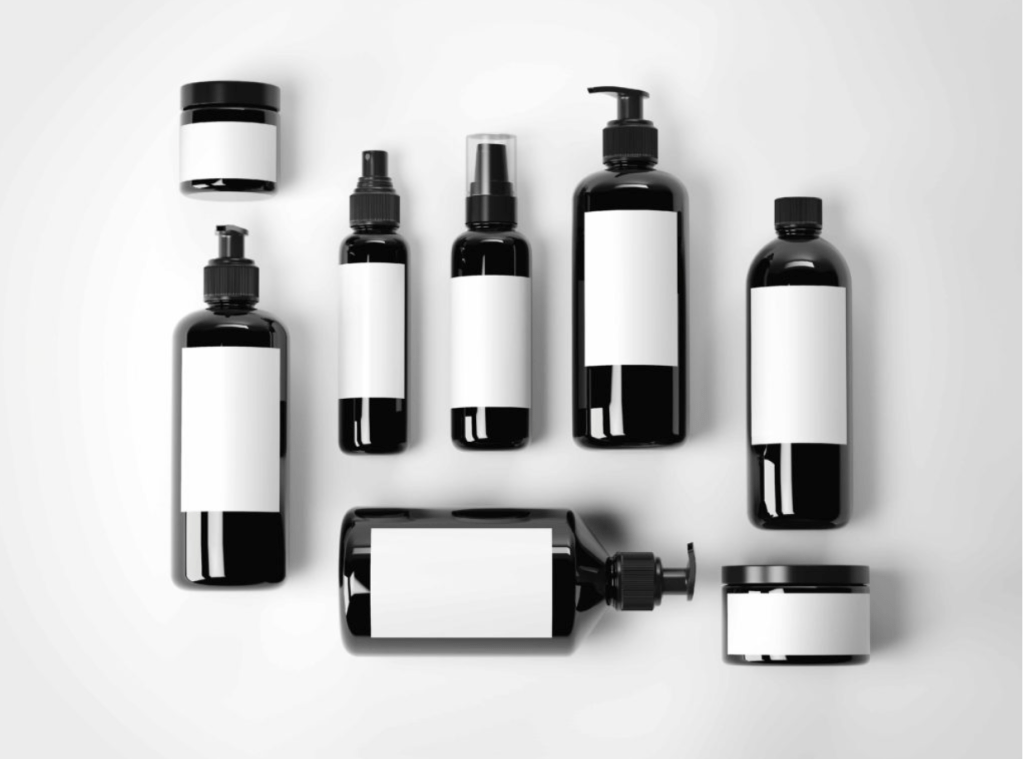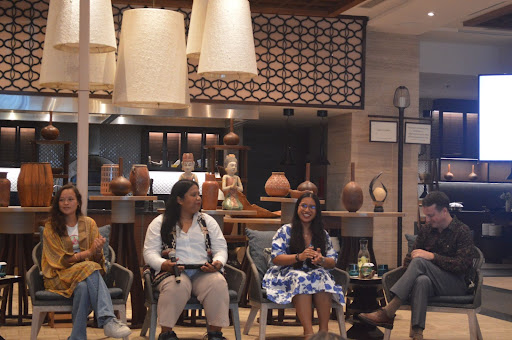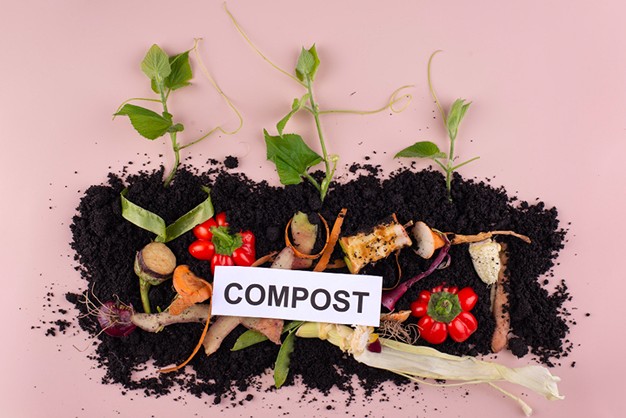As a tribute to women out there and as a part of our #zerowastepeptalk, we have had the opportunity to talk with Gitte Dalberg-Larsen – the co-owner of OrganiCup, who has been actively developing OrganiCup to be one of the most popular menstrual cup brands. OrganiCup has evolved from a product that people strangely looked at 6 years ago to a product that people search for especially following zero waste lifestyle trend recently.
For Gitte, making products that are kind to the environment and make a meaningful difference to people’s live mean so much, in which motivates her to join and grow OrganiCup together with the other two owners. With such passion, she decided to leave her corporate job a few years back and to focus, not only to entrepreneurial world, but also to a valuable and meaningful business.
OrganiCup is a product that zerowaste.id has been carrying since the beginning, because of its good review, clean design – typical Scandinavian touch, the good job it carries, and its affordable price compared to other brand without giving up its quality. It’s an honour to continue bringing the product to Indonesian market and especially to connect with Gitte personally. You can buy the product here.
In addition, it is very rewarding as well to hear that OrganiCup is currently working with various NGOs to distribute free OrganiCups and providing menstrual hygiene education in Africa. It’s part of OrganiCup’s broader mission to change the way periods affect women’s lives, their bodies and the environment.
Access to affordable and hygienic period products is a huge, global problem. Every month, millions of women have to turn to rags, plastic and even sand, to manage their periods. And for school-aged girls, this often means they skip school, missing out on a staggering 20% of their education. It’s a problem that we are passionate about changing.
How is it to live in Denmark, is it easy to live sustainably?
Life in Denmark is good – and the Danish population has been voted among the happiest in the world several times. We live in a safe country with a welfare state that secures free education, free hospitals, etc. It is definitely my impression that the Danish population is getting more and more occupied with sustainable living – eating healthy, using products with minimal chemicals, reducing waste and plastics etc.
Actually, organic sales in Denmark continue to set a record. For instance, from 2016 to 2017 the organic food sale increased with 31 %. Moreover, more than half of the Danes – more specifically 51.4 percent – buy organic food every single week. Today, Denmark is the country in the world where the sales of organic products make up for the largest part of the overall sales – 13.3% in 2017 numbers.
How long have you been in entrepreneurship? How did you get your entrepreneurial spirit?
I only took the step into entrepreneurship some years ago, but I guess I had it in me for much longer than that – I just didn’t take the big step before that. Previously, I was working in a big, international cosmetics company for many years, but I got tired of the corporate, political organisation where it is sometimes takes much too long for decisions to be made. It is much more satisfying to be part of a smaller, more agile organisation where it doesn’t take long from thought to action. And it is extremely satisfying to build a business on you own and with your partners and a small, dedicated team.
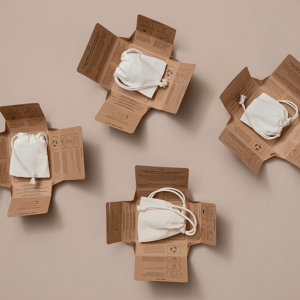
How did you start OrganiCup? What is the story behind it?
OrganiCup was founded in Copenhagen in 2012 by William Ravn and Kristian Meincke.
It began because a Danish national paper wrote a few articles about the menstrual cup and the great perspectives of it. William Ravn who is an entrepreneur within furniture and product design saw a big potential in creating a menstrual cup with a nice product design and appealing packaging that would appeal to a large group of girls and women all over the world.
In 2016 I joined William and Kristian as co-owner of the company. Together we wanted to spread the word and usage of the menstrual cup internationally and change then menstrual habits of girls towards a healthier, more convenient and sustainable solution.
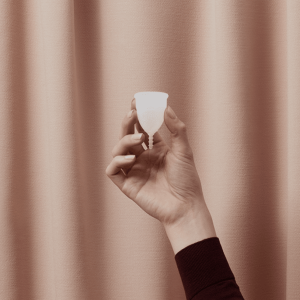
Why menstrual cup? Where did you get the inspiration from?
We like the idea of products that are kind to the environment and make a meaningful difference to people’s lives. Often, products either make a small difference for a lot of people or a significant difference for just a few. With OrganiCup we had the capacity to do both. It is incredible that you have a menstrual hygiene industry that impacts half of the earth’s population but has seen so little change over the past 50 years. It’s incredibly rewarding to be able to contribute towards changing that.
Furthermore, access to affordable and hygienic period products is a huge, global problem. Every month, millions of women have to turn to rags, plastic and even sand, to manage their periods. And for school-aged girls, this often means they skip school, missing out on a staggering 20% of their education. It’s a problem that we are passionate about changing. We’re currently working with various NGOs on distributing free OrganiCups and providing menstrual hygiene education and cup instructions in South Africa, Kenya and soon Namibia. There’s also lots to be done in industrialized countries and we’ve recently partnered with a UK-based NGO on providing menstrual hygiene education and free OrganiCups to girls from low-income families who skip school during periods because they can’t afford menstrual products. It’s part of OrganiCup’s broader mission to change the way periods affect women’s lives, their bodies and the environment.
What is your way to have less waste other than using menstrual cup?
Using a menstrual cup is probably one of the biggest contributions to saving waste a woman can do. In a lifetime a woman throws out approx. 11.000 pads and tampons. That is a huge number if you start multiplying that with all women on the planet.
Furthermore, I try to reduce the use of plastic in my everyday – i.e. by using reusable bags when shopping instead of buying disposable bags every time, use glass packaging instead of plastic, try to reduce the food waste from my family household etc. I still wish that Danish supermarkets would ban plastic bags once and for all, and would stop packing vegetables and fruits into all that plastic wrappings etc. But I guess if we all take small steps it will mean a lot in the end.
What is the challenge in reducing waste based on your experience?
That it is going too slow… No, seriously, it takes time to change habits. E.g. for 6 years now we have been working on spreading the awareness of the menstrual cup, together with other cup brands as well. For 2 years now, we finally see that the changes are coming and that more and more girls know about OrganiCup and start using it, and what is really great is that they talk to their friends about it as well. So, it pays off to be persistent and patient.
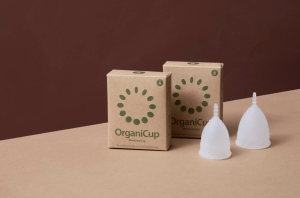
What is your message to young generation who wants to be like you?
First of all – don’t be afraid to make changes and break habits, esp. when it comes to your menstrual hygiene products. I meet so many young girls who want to live healthier and more sustainable and just need to the final push to do it.
Passion is energy. Feel the power that comes from focusing on what excites you – Oprah Winfrey
Get your OrganiCup here.
Interviewed by Maurilla
Written by Maurilla and Gitte
